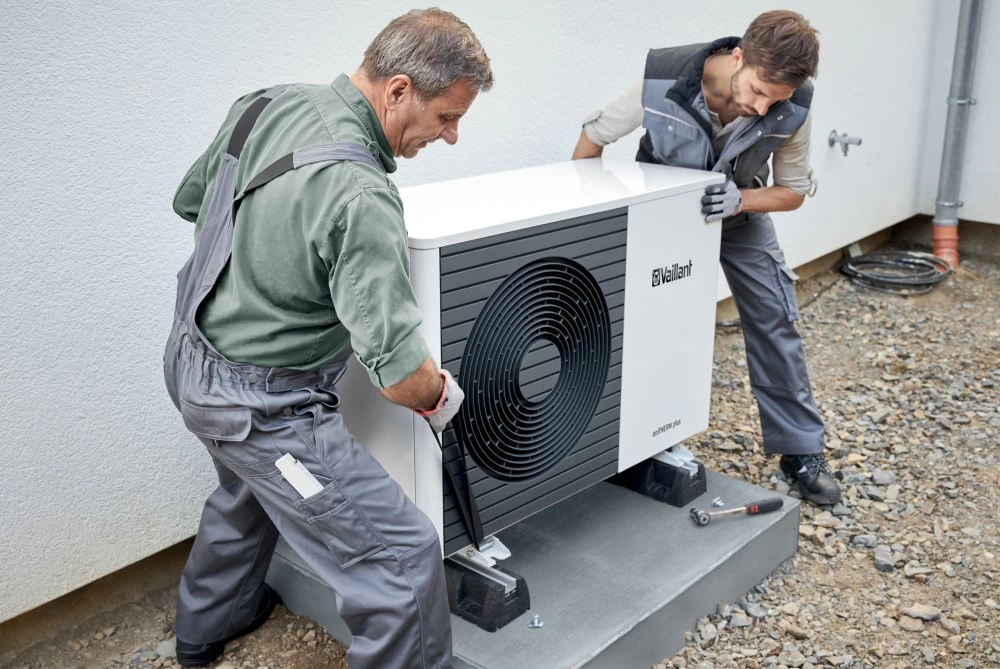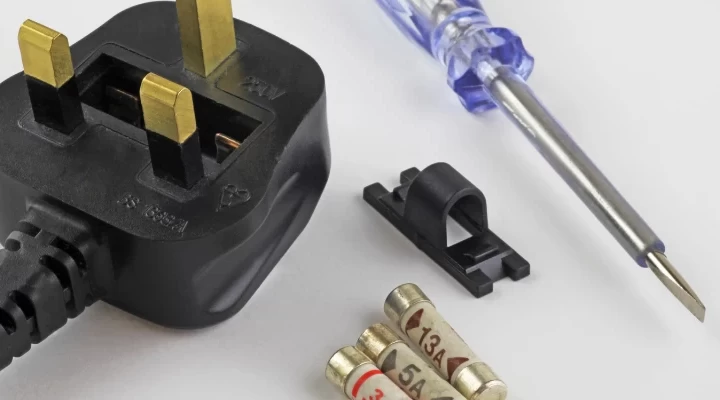Table of Contents
The price to replace a gas boiler with a heat pump varies depending on the type of heat pump, the size of the property, and crucially, the pipes, emitters, and location of the old boiler. It is a big choice to make, but it can be beneficial in the end.
Although the cost of installation can be high, air source heat pumps and ground source heat pumps can help you save money over the long term on operating costs. These technologies appear to be the government's favoured ones for heating our houses in the move towards net zero.
Additionally, with the recent implementation of the Boiler Upgrade Scheme and the VAT reduction on retrofit measures (such as the installation of heat pumps), financial support is now available to encourage householders to switch to low-carbon heating systems.
If your boiler is nearing the end of its life expectancy and you're thinking of replacing it with a heat pump, here's what you need to know about the cost and which heat pump to choose.
Which Heat Pump Types Are Available?
Heat pumps can be classified as either air source or ground source. An ground source heat pump pulls heat out of the ground, whereas an air source heat pump pulls heat out of the outdoor air. Air source heat pumps are slightly less efficient than ground source heat pumps, although both types of heat pumps are very efficient.
Even at -20°C, air source heat pumps function by drawing heat from the ambient air. To absorb the heat and transport it inside, they employ a refrigerant, which is a chemical that transforms between a liquid and a gas. After being compressed, the refrigerant's temperature is raised, which is utilised to heat the building's interior air or water.
Pumps that draw heat from the earth are known as ground source heat pumps. To absorb the heat, they use a system of subterranean pipes known as a ground loop. A substance, such as antifreeze, is pumped within the ground loop where it absorbs heat and warms the water or air.
What are the main differences between gas boilers and heat pumps?
The main difference between a heat pump and a boiler is the fuel used to heat your home and produce hot water. A heat pump, however, utilises electricity, which is potentially renewable, while a gas boiler uses natural gas, which is a fossil fuel and is not.
What are the cost differences between gas boilers and heat pumps?
Installation.
Gas boiler installation is often rapid, simple, and straightforward. There are many Gas Safe Engineers available to install gas boilers. With there being less demand for heat pumps, there are often fewer qualified installers available to install them, so you may have to wait longer. It also means they are significantly more expensive to buy and install than gas boilers.
Gas boilers will usually take 2/3 days to install whereas a heat pump system can take much longer, from 4/6 weeks. This is due to the intrinsic nature of their setup, which requires the digging of trenches and boreholes at the property's boundaries.
Upfront Costs.
The average gas boiler installation costs between £1,500 and £3,000, making it a reasonably priced option for household heating.
The cost of heat pumps itself is often very high, and they require specialised, challenging installation.
While ground source heat pumps and installation may cost between £18,000 and £25,000, air source heat pumps may cost between £8,000 and £15,000.
If you're on a budget, gas boilers are the best option. Heat pumps are now far more expensive, but as demand rises, their costs are projected to decrease.
Running Costs.
A heat pump will likely be less expensive to operate than a gas boiler if it is installed correctly in a building that is thermally efficient.
The majority of the housing stock in the UK is thermally inefficient, thus large investments in insulation, draught-proofing, and glazing may be necessary to reduce heat pump operating costs. The operating costs of a heat pump will undoubtedly be more tempting if the price of energy is cut.
Can a heat pump be installed in my house?

Does installing a heat pump in your home make sense, even though it is a low carbon heating option? Will they offer you the degree of comfort and dependability you desire?
Before considering whether or not installing a heat pump is a practical choice, there are certain important factors to take into account:
1. How well-insulated is your house?
Because heat pumps are more effective at producing heat at lower temperatures than gas boilers and have lower flow temperatures, well-insulated homes are a must.
2. What type of heating system do you have?
Heat pumps perform best with underfloor heating systems rather than ordinary radiators, but they can still function effectively if you're willing to swap them out with low-flow, high-temperature radiators like larger ones.
3. What type of heating system are you changing?
Even with a government grant, the up-front costs of installing a heat pump can be extremely costly. Although there is little doubt that they are more environmentally friendly, the operating expenses can be higher than those of a gas boiler, therefore they are frequently only cost-effective when replacing more expensive systems, such as electric heating.
4. Is there room for a heat pump at your home?
It goes without saying that an air source heat pump system requires some room in order to be installed, just as a ground source heat pump does.
The device must be mounted to an exterior wall and at least one metre away from the house's perimeter.
Is the future hydrogen boilers?

The best chance for the future of achieving the 2050 goal of net-zero carbon emissions is hydrogen. A very low carbon heating system for your home, hydrogen boilers won't be accessible in the UK until at least 2035.
Water is the only byproduct of burning hydrogen, thus we may need to use fossil fuels to produce it.
Conclusion.
Your own preferences, available time, money, and space all come into play. Although it is obvious that heat source pumps have numerous advantages, such as being economical with energy, ecologically friendly, and less expensive to operate, they are expensive to purchase and require a specific amount of space.
Additionally, they might perform worse in the harsher winter months. On the other hand, boilers are more dependable because they are heating systems that we are accustomed to using and that give our houses all the heat we require all year long. A heat pump won't outperform a gas boiler in particular, but they are more expensive to operate and less environmentally friendly.
Both a boiler and a heat pump system will provide your house with the heat it needs, but since gas boilers may soon be phased out, it might be time to start looking at greener choices now and be nice to the environment and your budget.







